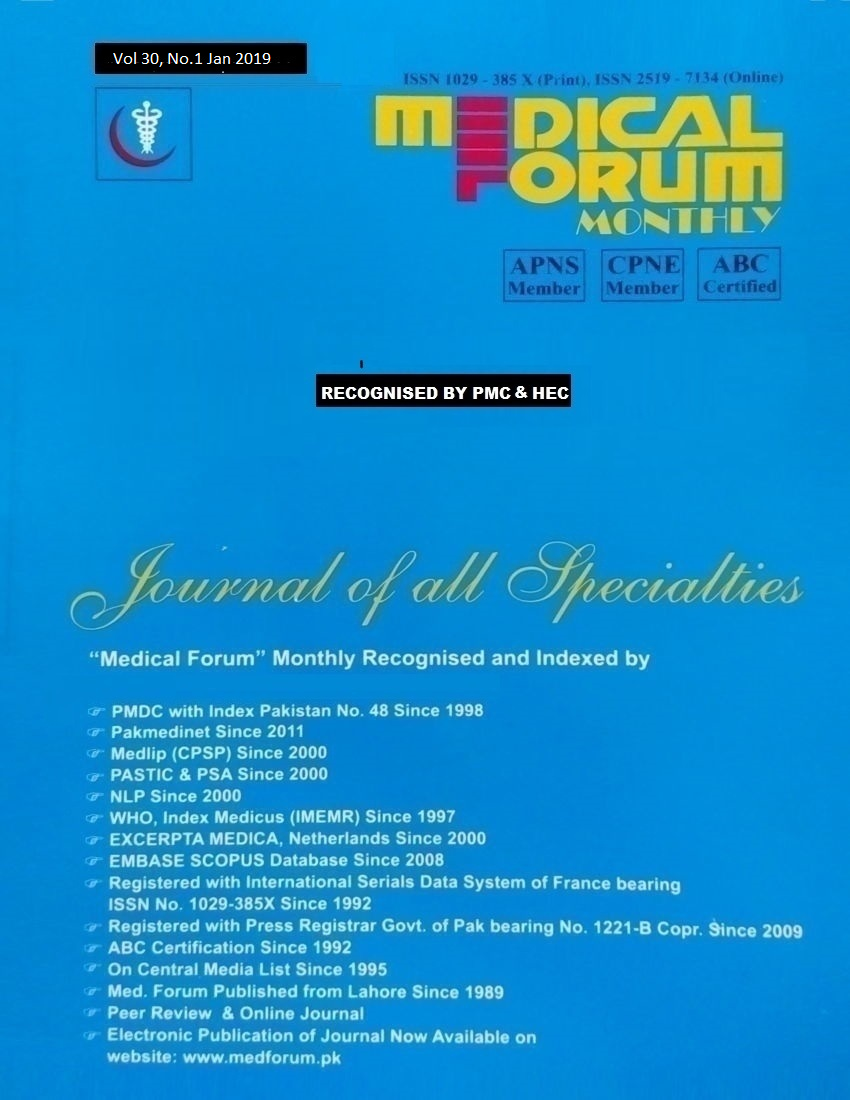
21. Vesicovaginal Fistula Seen in Southern Punjab-Etiology and Management
Asif Imran1, Tanvir-ul-Haq2, Kishwar Naheed3 and Sarfraz Hassan2
ABSTRACT
Objective: To describe etiology of Vesicovaginal Fistula (VVF( to investigate surgical outcome of Vesicovaginal Fistula repair after use of different management techniques.
Study Design: Retrospective study
Place and Duration of Study: This study was conducted at the Urology, Multan Institute of Kidney Diseases Multan, Urology Department BVH Hospital Bahawalpur from January 2017 to November 2018.
Materials and Methods: Surgical repair of urinary fistula was performed in 40 patients included in the study. Main variables of study were etiology of VVF, site, previous failed repair, size, presentation, surgical repair technique and outcome.
Results: Mean age of patients in study was 33.9±3.6 years. Most of the patients developed fistula due to gynecologic surgery(60%)out of which abdominal hysterectomy was more frequent cause(45%).In 12 patients (30%) VVF occurred following obstructed and prolong labor and in 4 patients VVF was seen after cesarean sections due to reasons other than obstructed labor. Abdominal approach was used in majority of patients 75% and remaining patients underwent vaginal repair. The outcome was successful in 87.5% of cases.
Conclusion: Gynecologic surgery is the most common cause of urinary fistula. In cases of previous failed repairs abdominal approach can be used due to its high success rate.
Key Words: Vesicovaginal fistula, Surgical management, Failed repair, Abdominal approach.
Citation of articles: Imran A, Haq T, Naheed K, Hassan S. Vesicovaginal Fistula Seen in Southern Punjab-Etiology and Management. Med Forum 2019;20(1):86-89.
